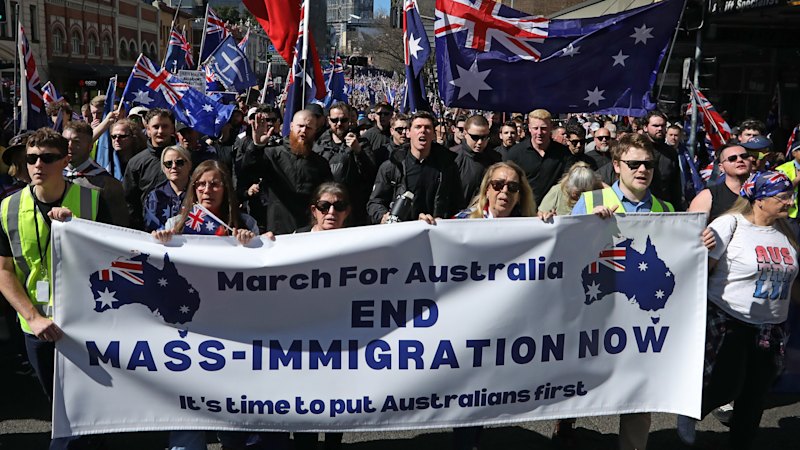
The Trump administration has directed its embassy in Canberra to collect data on crimes and human rights abuses associated with migrants in Australia. This initiative is part of a broader strategy aimed at tackling what the administration describes as a significant threat posed by mass migration to Western civilization. The move has raised concerns about U.S. involvement in Australian domestic matters.
Data Collection and Concerns on Migration
A senior official from the U.S. State Department indicated that diplomats in Australia are to report on migrant-related crimes. This directive echoes similar instructions sent to U.S. embassies in various countries, including those in Europe, Canada, and New Zealand. The official, who requested anonymity, noted that the U.S. government was alarmed about the potential strain on markets, citing Australia’s ongoing housing crisis as a notable example.
“We want to caution the Australians,” the official stated. “We love the Australian people, but we want to warn our friends that if you import a rapid number of individuals of any background, particularly from cultures that are radically different from Australia’s, without any mechanisms to manage the impact, it can lead to political unrest and economic instability.”
Australia typically admits about 185,000 permanent migrants annually, primarily skilled workers. However, net overseas migration has dropped significantly from a post-COVID high of 538,000 in 2022-23 to approximately 316,000, which is below initial forecasts.
Political Reactions and Policy Changes
In response to the ongoing debate surrounding immigration policy, Australian Opposition Leader Sussan Ley has vowed to introduce a plan aimed at further reducing the intake of migrants. This commitment reflects the contentious nature of immigration and population issues in Australia.
Additionally, the State Department has initiated a separate effort to compile its annual human rights report, which has traditionally focused on global human rights abuses. This year, the report will shift its emphasis to examine countries’ adherence to diversity, equity, and inclusion (DEI) policies, as well as funding for services related to abortion and gender transition surgery for minors. The intent, according to the senior official, is to hold both allies and adversaries accountable for their human rights practices.
U.S. Vice President JD Vance has been vocal about the challenges posed by mass migration, previously warning European leaders at the Munich Security Conference that their political decisions could lead to voter backlash. In September, President Donald Trump reinforced this message during his address at the United Nations, claiming that the globalist migration agenda was detrimental to Western societies.
The focus of these new initiatives, overseen by the Bureau of Democracy, Human Rights and Labour, underscores the seriousness with which the Trump administration is approaching these issues. As stated by Samuel Samson, a senior policy adviser, there is a need to address human rights concerns that have been overlooked due to political correctness.
The Australian government has yet to respond to inquiries regarding the U.S. embassy’s directive. As both nations navigate this complex issue, the implications of such data collection on diplomatic relations and domestic policy will likely unfold in the coming weeks.






